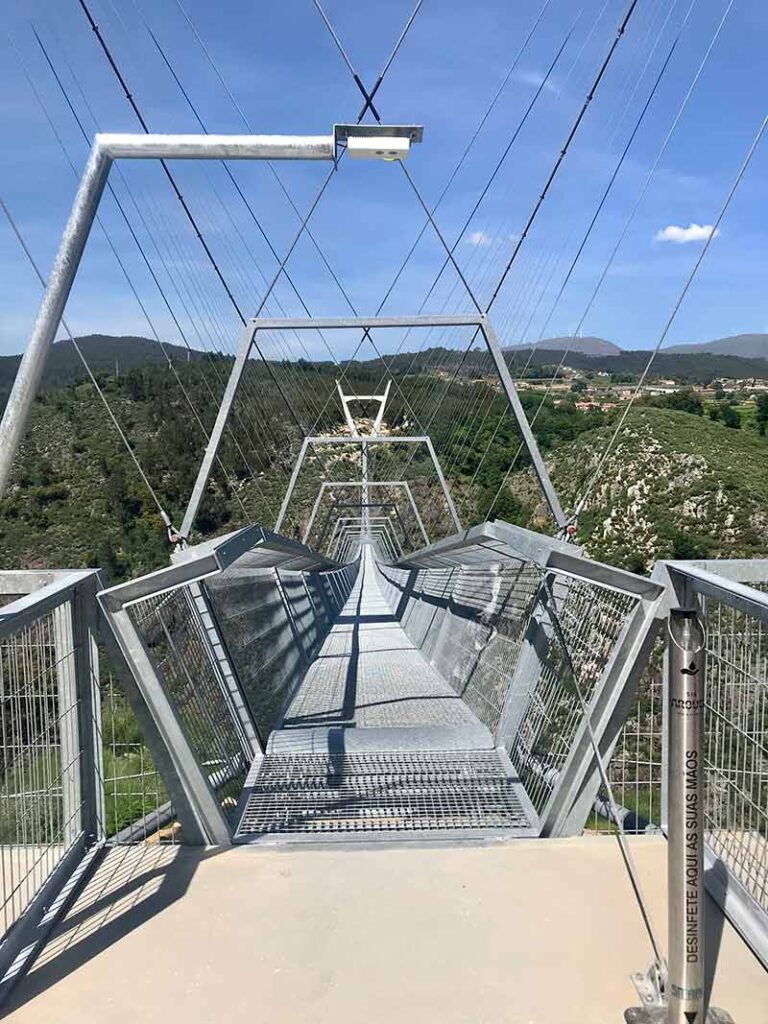
Ponte 516 in Arouca, Your Complete Guide to Visiting
Be fully prepared to cross Ponte 516 with this complete guide to visiting the world’s longest pedestrian suspension bridge in Arouca, Portugal!
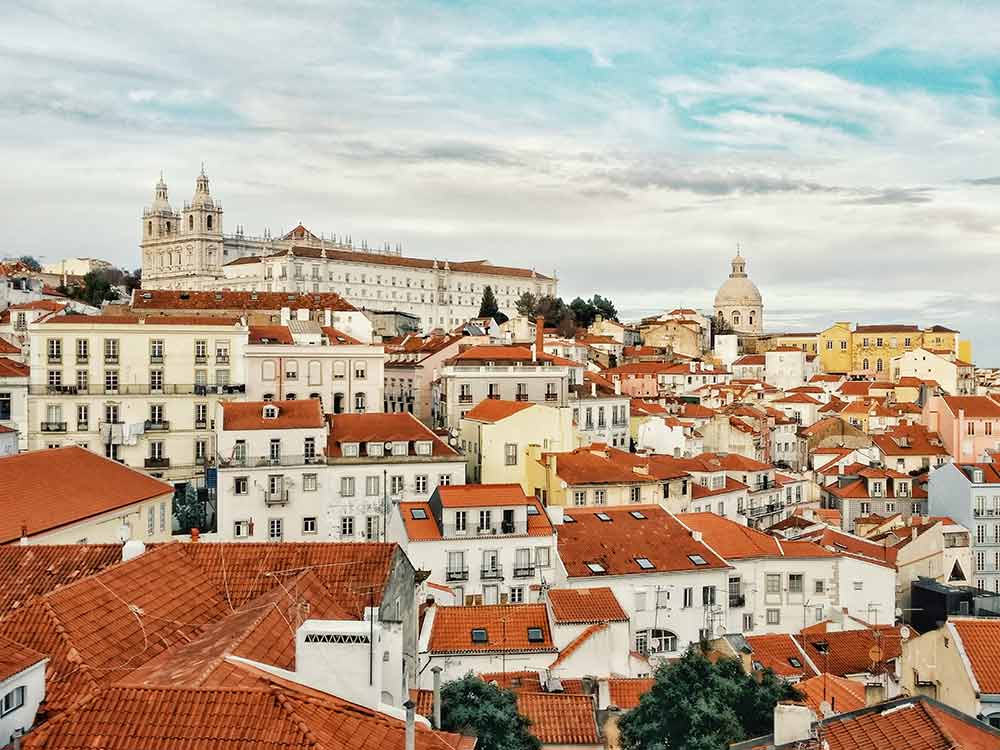
Adventures and tips from my time living in Portugal
Portugal, located on Europe’s west coast, is a safe and friendly country to visit. Its captivating historical cities, sandy beaches, and rugged interior beg to be explored. Tourist hotspots like Lisbon and the Algarve are often bustling with visitors, but there are still plenty of tranquil spots to get away to. Cheap food and wine make Portugal one of the most cost-effective travel options in Europe.
Portuguese is the official language of Portugal. While it appears similar to Spanish in writing, it sounds very different when spoken. The Portuguese take pride in their language, so don’t assume they will respond if you speak in Spanish. Making an effort to use a few basic Portuguese words or phrases will be appreciated. But, if you forget, it’s preferable to say “thank you” instead of “gracias.”
Portugal has one of the highest levels of English proficiency in Europe. Although English is commonly spoken in urban and tourist centres, it is less prevalent in rural regions.
The official currency of Portugal is the Euro (EUR). ATMS or cash points are known locally as multibancos or caixas automaticas. They are readily available in cities and most towns.
Although most stores, hotels, and toll booths accept card payments, smaller shops and cafes may not accept international cards. I recommend carrying some cash with you in case you can’t pay by card.
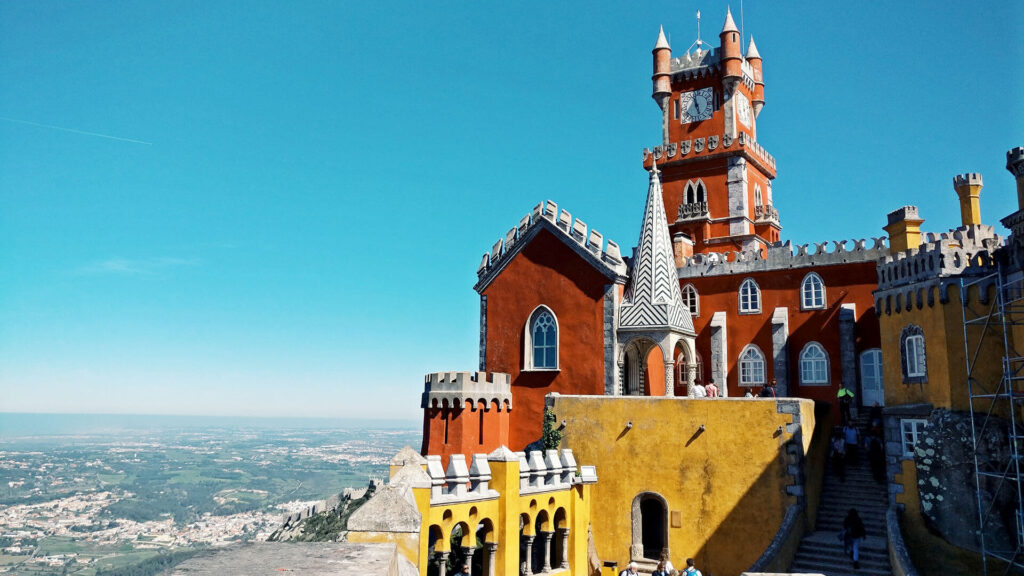
Portugal follows Western European Time, which is GMT during the winter, just like the UK. Travellers arriving from Spain should set their clocks back one hour upon arrival. During the summer, clocks are adjusted to GMT +1 at the end of March and back to GMT at the end of October.
Don’t worry Mum! Portugal is considered one of the safest countries globally. However, like any destination, petty theft can occur. Be alert for pickpockets and scammers, especially in crowded tourist areas.
In case of an emergency, the contact number is 112, although hopefully, you won’t need to use it.
In Portugal, the primary voltage is 220V, and the standard plug type is the European two-round pin plug. Devices designed for 240V will work fine. You can buy an adapter for international plugs in airports and many shops.

Be fully prepared to cross Ponte 516 with this complete guide to visiting the world’s longest pedestrian suspension bridge in Arouca, Portugal!
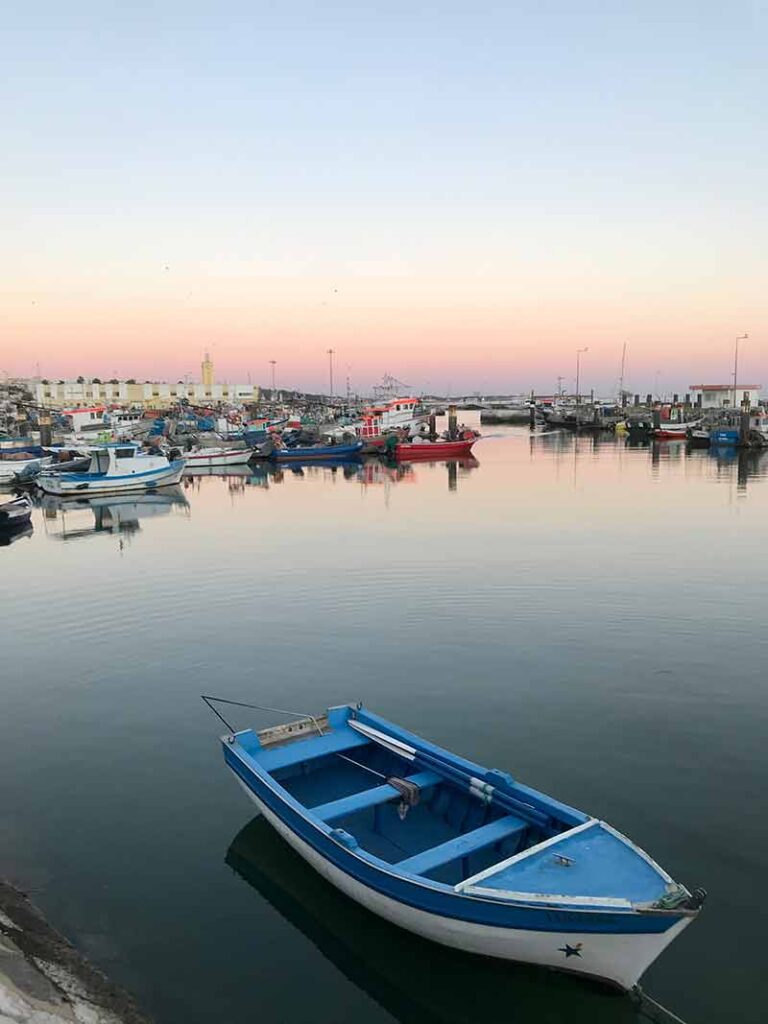
Find out everyhing you need to know to visit Setúbal on a day trip from Lisbon without a car.

Deciding whether to rent a car on your trip to Portugal? Read my tips for getting around the country and what to consider before you book a car!
You shouldn’t need a visa if you are travelling from most European countries, Australia, New Zealand, Canada or the US. However, non-EU travellers can only stay for a max of 90 days.
If you plan on staying longer than 90 days or working during your stay, you’ll need to check what visa options are available. Likewise, if are travelling from most other countries you will need to organise a visa before you arrive.
Be sure to research the latest visa requirements for your country before planning your trip. You can find more information on visas by visiting the SEF (Serviço de Estrangeiros e Fronteiras) website or contacting your local Portuguese embassy.
Portugal is a small and well-connected country with a reasonable public transportation system. You can visit many of the top travel destinations and attractions without a car. However, it may be more convenient and faster to have your own transport.
The decision to rent a car ultimately depends on where you plan on going, how long you have and your budget. I’ve covered some pros and cons of the transport options available in Portugal to help you decide whether to rent a car on your trip.
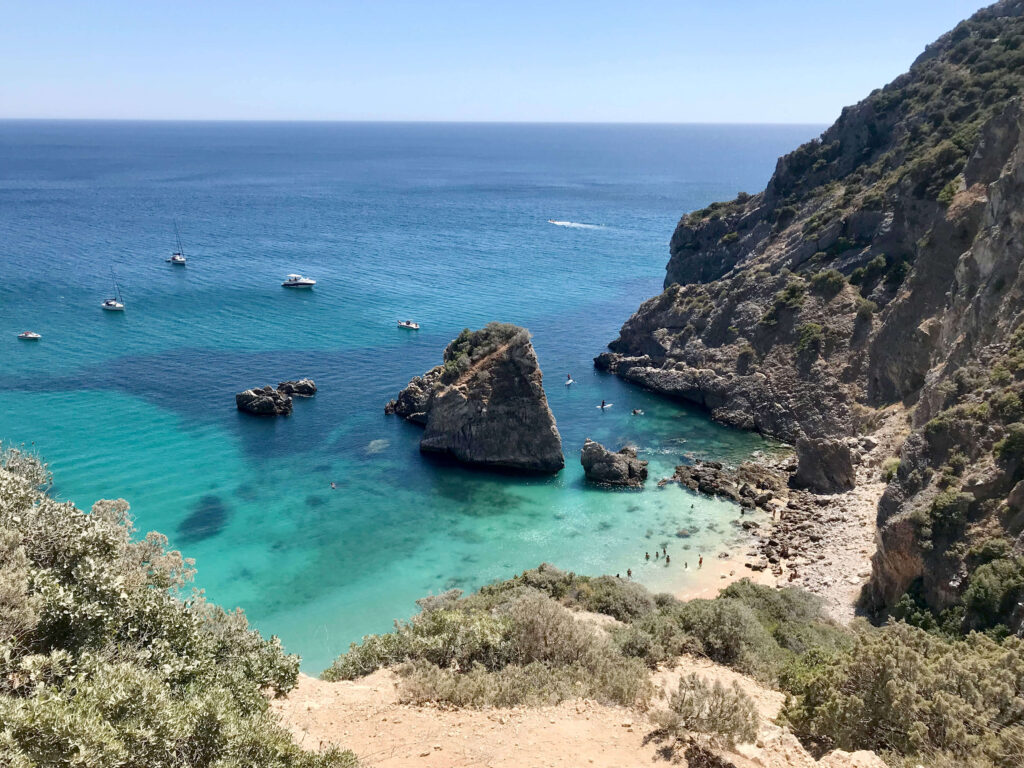
That depends on what you want to do! While Portugal generally boasts pleasant weather year-round, December to March can be rainy. For hiking and outdoor activities, spring and autumn are the ideal seasons. The weather is milder and there are fewer crowds than in summer.
Coastal areas experience a surge in tourism from June to September. Accommodations and activities tend to be more expensive and booked out in advance over the summer. However, if you’re seeking sun, sand, and surf, this is the perfect time to visit.

Be fully prepared to cross Ponte 516 with this complete guide to visiting the world’s longest pedestrian suspension bridge in Arouca, Portugal!

Find out everyhing you need to know to visit Setúbal on a day trip from Lisbon without a car.

Deciding whether to rent a car on your trip to Portugal? Read my tips for getting around the country and what to consider before you book a car!